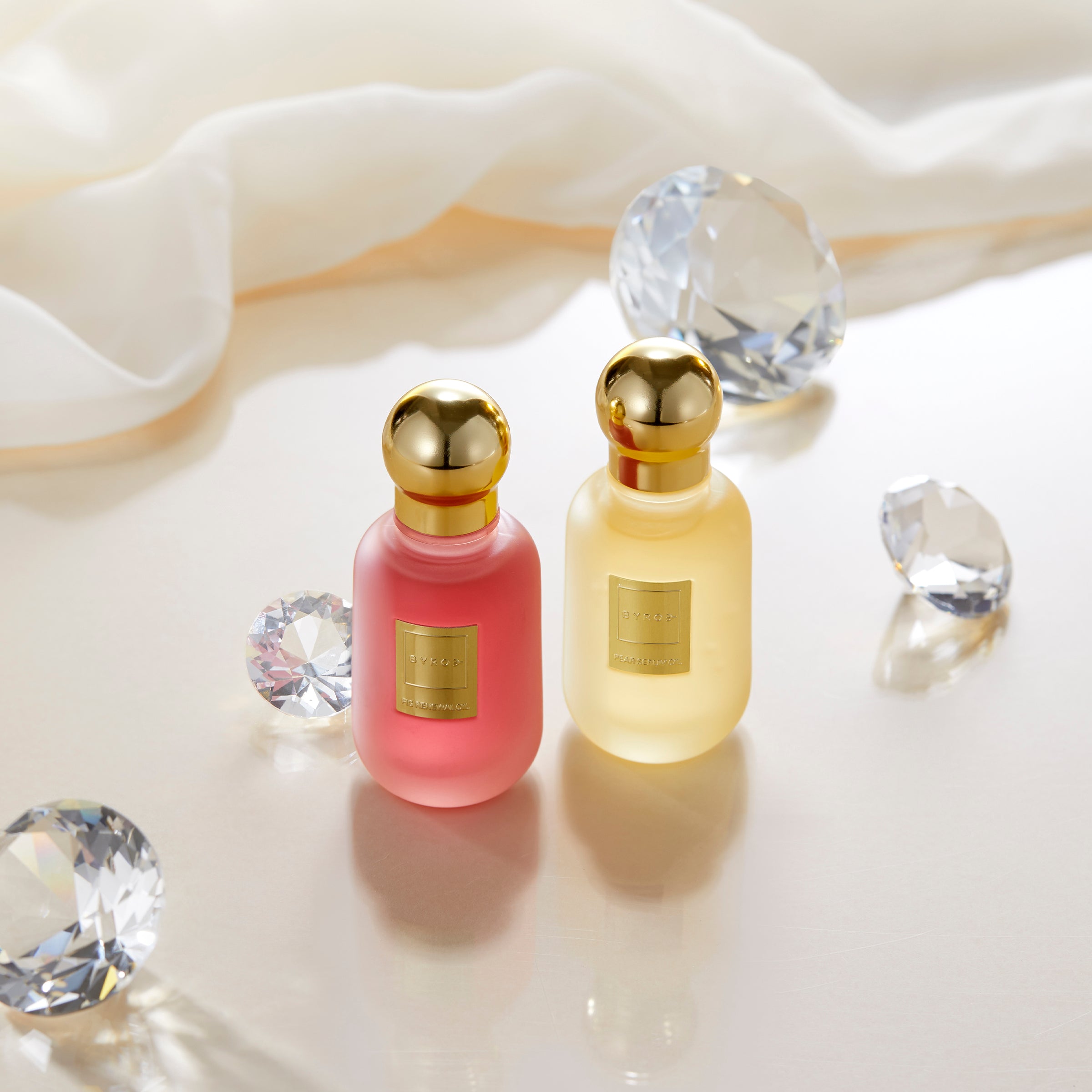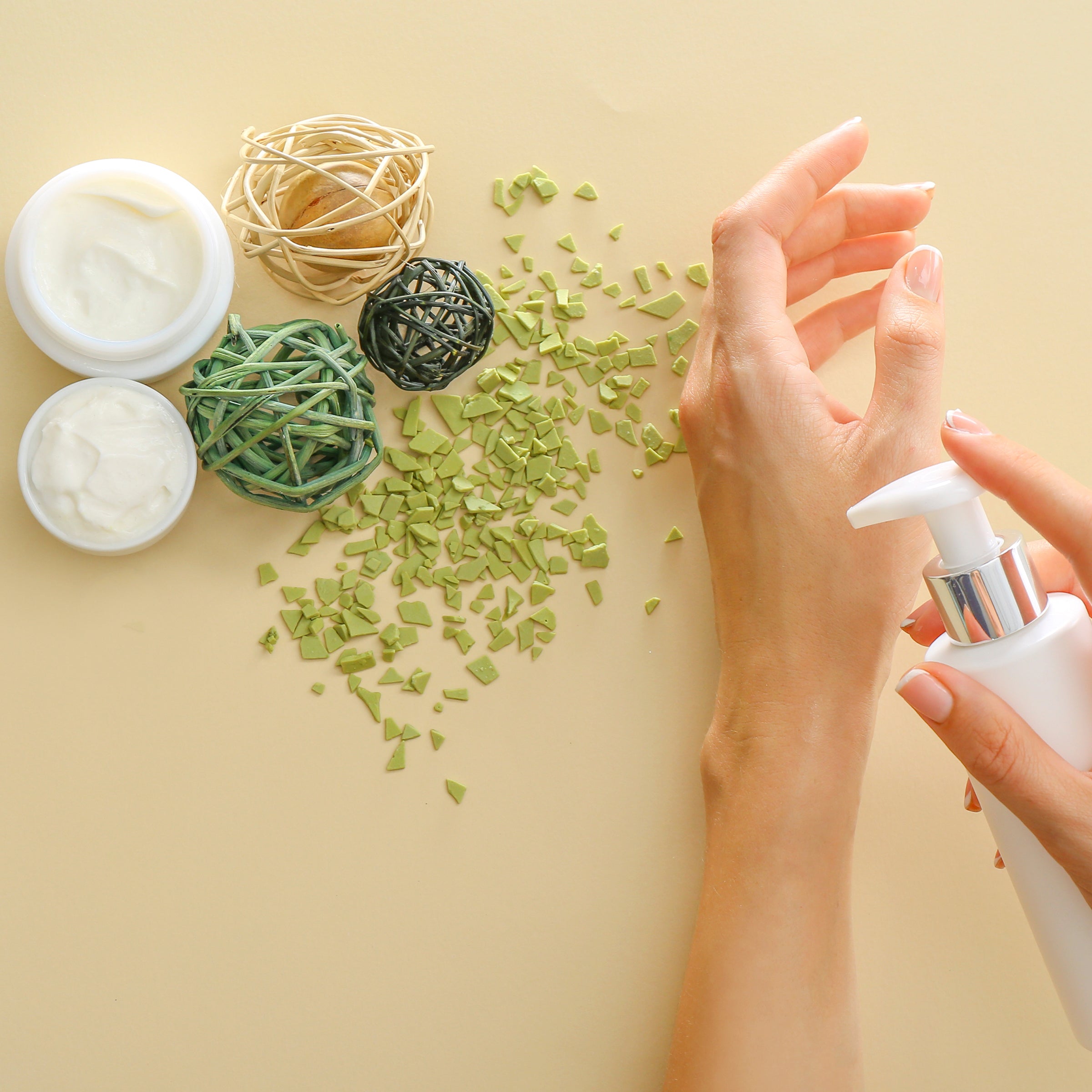When browsing through the skincare aisles you may have run across the term “non-comedogenic” on your favorite skincare products. What does it mean? How does it affect your skincare routine? We’re here to help you figure it out.
What Does Non-Comedogenic Even Mean?
What Does Non-Comedogenic Even Mean?
What Does Non-Comedogenic Even Mean?
It's not as foolproof as we thought
What It Means
According to Merriam-Webster, non-comedogenic refers to a product that does “not tend[ing] to clog pores.” Products labeled as such claim to exclude ingredients that could potentially cause blackheads or breakouts. Sound amazing? It’s not that simple.
This is because no matter how much research has been done on this topic the term “non-comedogenic” is not standardized. There are no set rules in place for brands to categorize and market their products this way. To make it even more complicated, everyone’s skin is different. What causes one person to get acne is not the same as another’s. We also have to consider environmental factors such as increased exposure to pollution which could also affect a person’s tendency to get acne. Safe to say — it’s complicated.
IT’S HERE
We’ve teamed up with skinfluencer J.C. Dombrowski
to bring you all of his favorite BYROE products!
THE GIFT OF GLOW
With any purchase over $300, enjoy a free full-size Tomato Serum. Code: DAYTWO
THE FRESHEST OF FIGS
This antioxidant-rich ingredient is more than just a delicious fruit it renews your skin from the inside out.
IT’S HERE
We’ve teamed up with skinfluencer J.C. Dombrowski
to bring you all of his favorite BYROE products!
THE GIFT OF GLOW
With any purchase over $300, enjoy a free full-size Tomato Serum. Code: DAYTWO
THE FRESHEST OF FIGS
This antioxidant-rich ingredient is more than just a delicious fruit it renews your skin from the inside out.
So, what ingredients should avoid
if I have acne-prone skin then?
Skincare is very much trial and error. As we mentioned, there’s no one size fits all approach because everyone’s acne triggers are different. So, instead of focusing on what you need to avoid when shopping instead focus on ingredients that are beneficial for acne-prone skin. Some of our favorites include Salicylic Acid (BHA), Polyhydroxy Acid (PHA), Centella Asiatica, Green Tea, and Niacinamide.
Ingredients like AHAs, BHAs, and PHAs are especially helpful as they work to exfoliate and balance oil production. They will help to target existing breakouts while preventing new ones from forming. We like to pair these ingredients alongside soothing ones like Centella Asiatica and Green Tea as they clarify without irritating your skin. A major component of acne is also increased redness and inflammation and these ingredients strengthen your skin barrier and protect it from bad bacteria that can cause even more acne. Niacinamide is another favorite because it works to minimize the appearance of pores, smooth fine lines, and brighten your complexion.
The Bitter Green Essence Toner and Tomato Serum are great options you can try. They both contain essential ingredients that can help to clear and brighten your skin. Our go-to essence toner is formulated with a clarifying blend of 33 greens designed to decongest and deeply hydrate the skin. Meanwhile, the Tomato Serum contains fruit enzymes to smooth skin texture while vitamin C works double time to visibly diminish signs of hyperpigmentation.
💛 LONG STORY SHORT
“Non-Comedogenic” is not all it’s cracked up to be. The lack of regulation behind this term makes it an unreliable way to effectively build an “acne-proof” routine. We recommend focusing less on the marketing terms and more on the ingredients themselves. If you ever need any help, feel free to reach out to us at info@byroe.com for personalized recommendations!
It's not as foolproof as we thought
When browsing through the skincare aisles you may have run across the term “non-comedogenic” on your favorite skincare products. What does it mean? How does it affect your skincare routine? We’re here to help you figure it out.
What It Means
According to Merriam-Webster, non-comedogenic refers to a product that does “not tend[ing] to clog pores.” Products labeled as such claim to exclude ingredients that could potentially cause blackheads or breakouts. Sound amazing? It’s not that simple.
This is because no matter how much research has been done on this topic the term “non-comedogenic” is not standardized. There are no set rules in place for brands to categorize and market their products this way. To make it even more complicated, everyone’s skin is different. What causes one person to get acne is not the same as another’s. We also have to consider environmental factors such as increased exposure to pollution which could also affect a person’s tendency to get acne. Safe to say — it’s complicated.
So, what ingredients should avoid
if I have acne-prone skin then?
Skincare is very much trial and error.
As we mentioned, there’s no one size fits all approach because everyone’s acne triggers are different. So, instead of focusing on what you need to avoid when shopping instead focus on ingredients that are beneficial for acne-prone skin. Some of our favorites include Salicylic Acid (BHA), Polyhydroxy Acid (PHA), Centella Asiatica, Green Tea, and Niacinamide.
Ingredients like AHAs, BHAs, and PHAs are especially helpful as they work to exfoliate and balance oil production. They will help to target existing breakouts while preventing new ones from forming. We like to pair these ingredients alongside soothing ones like Centella Asiatica and Green Tea as they clarify without irritating your skin.
A major component of acne is also increased redness and inflammation and these ingredients strengthen your skin barrier and protect it from bad bacteria that can cause even more acne. Niacinamide is another favorite because it works to minimize the appearance of pores, smooth fine lines, and brighten your complexion.
The Bitter Green Essence Toner and Tomato Serum are great options you can try. They both contain essential ingredients that can help to clear and brighten your skin. Our go-to essence toner is formulated with a clarifying blend of 33 greens designed to decongest and deeply hydrate the skin. Meanwhile, the Tomato Serum contains fruit enzymes to smooth skin texture while vitamin C works double time to visibly diminish signs of hyperpigmentation.
💛 LONG STORY SHORT
“Non-Comedogenic” is not all it’s cracked up to be. The lack of regulation behind this term makes it an unreliable way to effectively build an “acne-proof” routine. We recommend focusing less on the marketing terms and more on the ingredients themselves. If you ever need any help, feel free to reach out to us at info@byroe.com for personalized recommendations!
It's not as foolproof as we thought
When browsing through the skincare aisles you may have run across the term “non-comedogenic” on your favorite skincare products. What does it mean? How does it affect your skincare routine? We’re here to help you figure it out.
What It Means
According to Merriam-Webster, non-comedogenic refers to a product that does “not tend[ing] to clog pores.” Products labeled as such claim to exclude ingredients that could potentially cause blackheads or breakouts. Sound amazing? It’s not that simple.
This is because no matter how much research has been done on this topic the term “non-comedogenic” is not standardized. There are no set rules in place for brands to categorize and market their products this way. To make it even more complicated, everyone’s skin is different. What causes one person to get acne is not the same as another’s. We also have to consider environmental factors such as increased exposure to pollution which could also affect a person’s tendency to get acne. Safe to say — it’s complicated.
So, what ingredients should avoid
if I have acne-prone skin then?
Skincare is very much trial and error.
As we mentioned, there’s no one size fits all approach because everyone’s acne triggers are different. So, instead of focusing on what you need to avoid when shopping instead focus on ingredients that are beneficial for acne-prone skin. Some of our favorites include Salicylic Acid (BHA), Polyhydroxy Acid (PHA), Centella Asiatica, Green Tea, and Niacinamide.
Ingredients like AHAs, BHAs, and PHAs are especially helpful as they work to exfoliate and balance oil production. They will help to target existing breakouts while preventing new ones from forming. We like to pair these ingredients alongside soothing ones like Centella Asiatica and Green Tea as they clarify without irritating your skin.
A major component of acne is also increased redness and inflammation and these ingredients strengthen your skin barrier and protect it from bad bacteria that can cause even more acne. Niacinamide is another favorite because it works to minimize the appearance of pores, smooth fine lines, and brighten your complexion.
The Bitter Green Essence Toner and Tomato Serum are great options you can try. They both contain essential ingredients that can help to clear and brighten your skin. Our go-to essence toner is formulated with a clarifying blend of 33 greens designed to decongest and deeply hydrate the skin. Meanwhile, the Tomato Serum contains fruit enzymes to smooth skin texture while vitamin C works double time to visibly diminish signs of hyperpigmentation.
💛 LONG STORY SHORT
“Non-Comedogenic” is not all it’s cracked up to be. The lack of regulation behind this term makes it an unreliable way to effectively build an “acne-proof” routine. We recommend focusing less on the marketing terms and more on the ingredients themselves. If you ever need any help, feel free to reach out to us at info@byroe.com for personalized recommendations!






Leave a comment
All comments are moderated before being published.
This site is protected by hCaptcha and the hCaptcha Privacy Policy and Terms of Service apply.